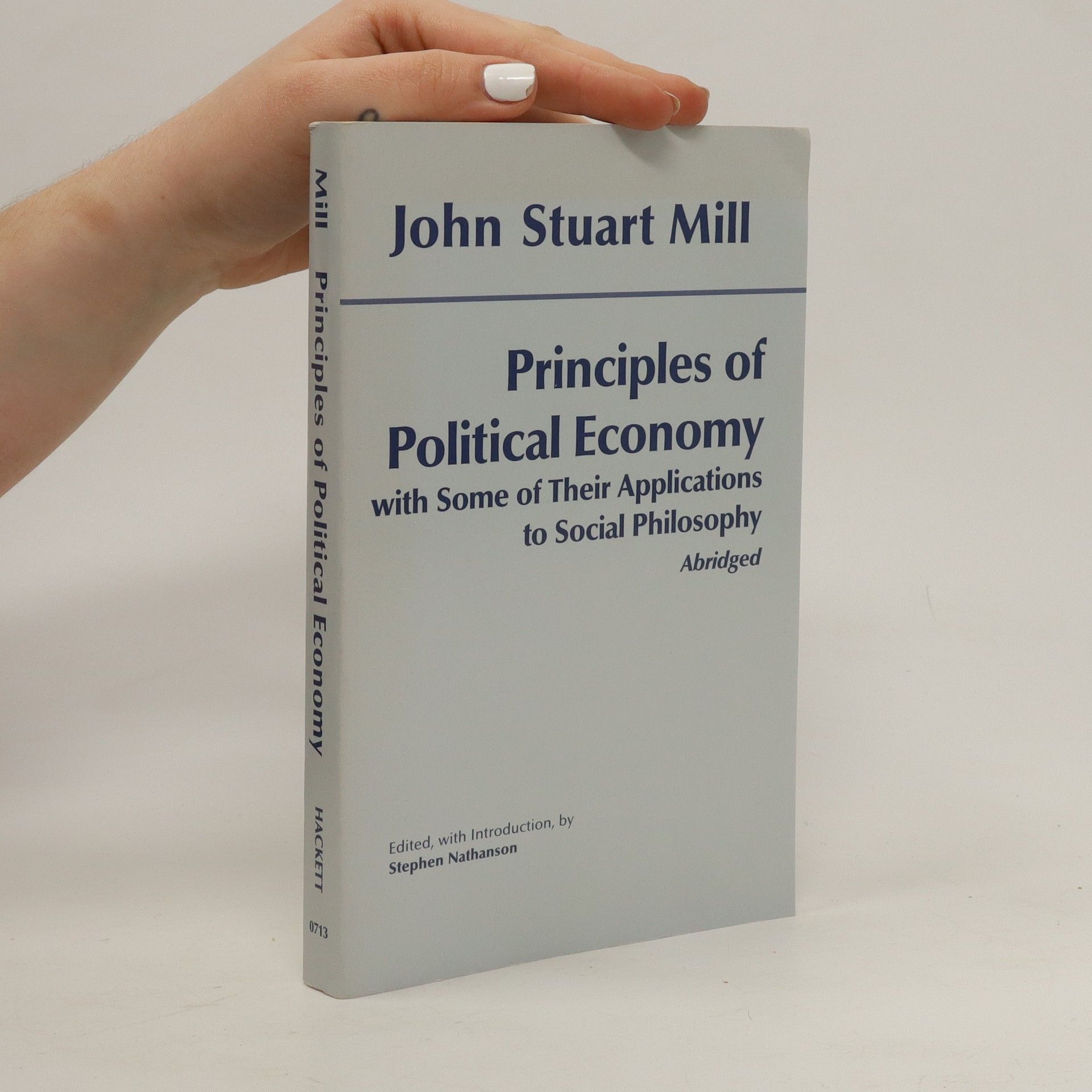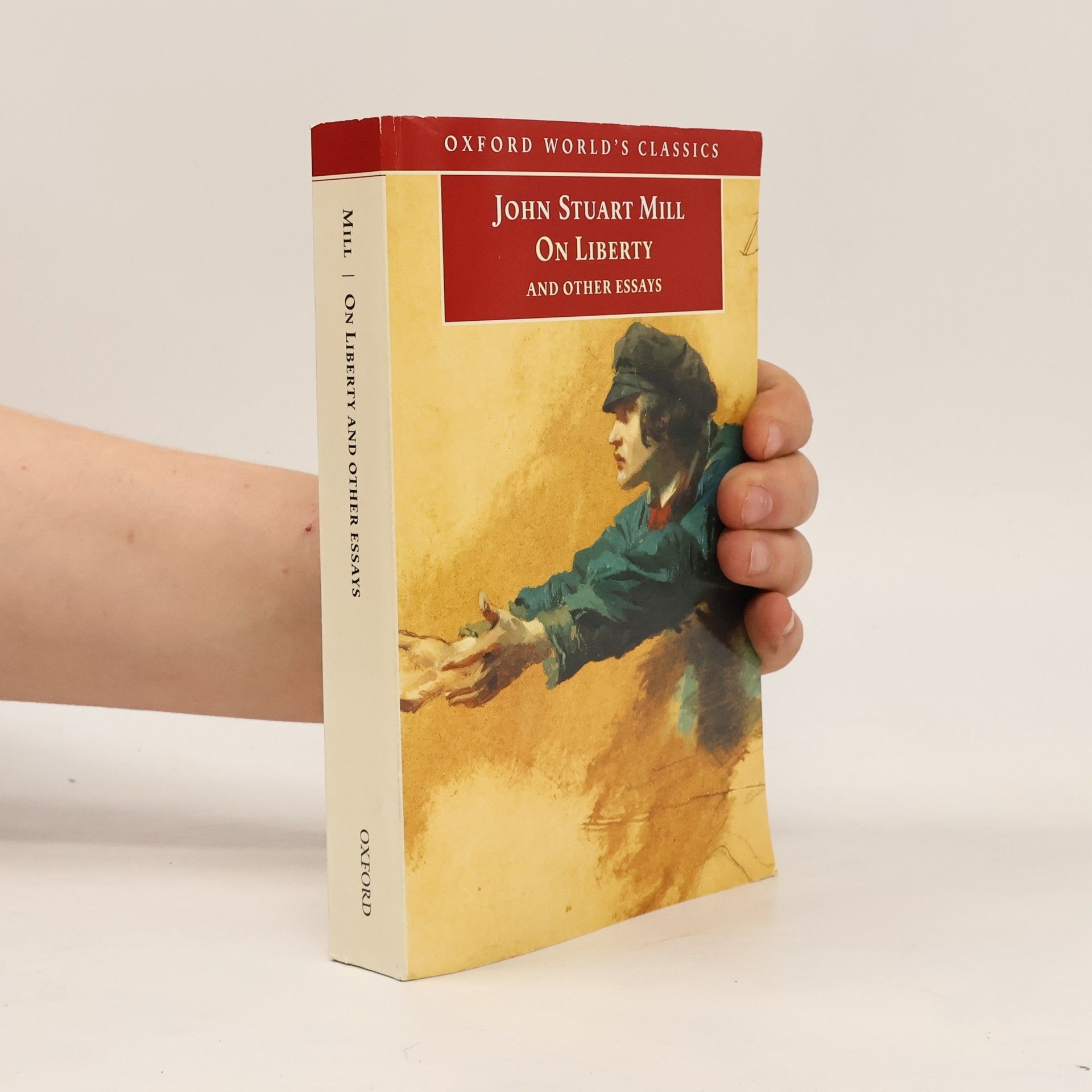Focusing on accessibility, this publication by Megali aims to enhance the reading experience for individuals with impaired vision by reproducing historical works in large print. The initiative showcases a commitment to preserving literature while ensuring it is easily readable for all audiences.
John Stuart Mill Book order (chronological)
John Stuart Mill was an influential 19th-century liberal thinker, renowned for his work in philosophy and political economy. He was a key exponent of utilitarianism, an ethical theory he developed beyond Jeremy Bentham's original conception. Mill's approach to utilitarianism was distinguished by its emphasis on the quality of pleasures and individual liberty. His ideas profoundly shaped the liberal tradition and continue to resonate in contemporary ethical and political discourse.







The Philosophy of Utilitarianism
- 48 pages
- 2 hours of reading
In 'The Philosophy of Utilitarianism', John Stuart Mill explores the ethical theory advocating for the greatest happiness for the greatest number. He builds on Jeremy Bentham's principles, emphasizing individual liberty and the consequences of actions. This foundational text challenges readers to rethink their ethical beliefs through clear reasoning and rigorous examination.
O wolności Większość ludzi przedkłada siłę nad wolność. John Stuart Mill Czym jest wolność indywidualna i jak należy ją rozumieć? Czy wolność to wartość sama w sobie? Jaki jest zakres nienaruszalnej wolności człowieka jako autonomicznej osoby? Jak powinna wyglądać idealna relacja pomiędzy jednostką a społeczeństwem? Jak daleko władze mogą ingerować w wolność jednostki i w którym momencie przesuwanie granic wolności osobistej doprowadza do zastąpienia demokracji anarchią? Odpowiedzi na te i wiele innych pytań poszukiwał empirysta i utylitarysta John Stuart Mill. Oddajemy w ręce Czytelników słynny esej pióra jednego z najważniejszych twórców doktryny liberalnej. Zawarte w nim rozważania o różnych obliczach wolności, o prawie do indywidualnego szczęścia i rozwoju, o swobodach obywatelskich wciąż są niezwykle ważnym i dojrzałym głosem w dyskusji o sprawiedliwym państwie i granicach władzy społeczeństwa nad jednostką. Opisany w dziele liberalizm klasyczny wspiera człowieka w rozwoju, zapewnia swobodę myśli i poglądów, a także afirmuje tolerancję i równość wobec prawa. W dzisiejszym świecie jednak łatwo się przekonać, że wolność nie została dana raz na zawsze, a stopniowe doprowadzanie do tego, by ludzie pogodzili się ze zniewoleniem, jest zaskakująco łatwe. Aby pozostać wolnym człowiekiem, trzeba mieć świadomość wolności. I właśnie dlatego trzeba uważnie przestudiować ten traktat.
Mill Selected Writings
On Liberty, The Subjection of Women, and Utilitarianism
- 226 pages
- 8 hours of reading
This collection features three distinct narratives, each offering a unique perspective and storyline. Readers can expect a blend of genres, with engaging characters and intricate plots that interconnect thematically. The compilation invites exploration of diverse settings and ideas, making it a rich experience for those who enjoy multifaceted storytelling. Perfect for readers seeking variety, this anthology promises to captivate with its depth and creativity across all three works.
The Norton Critical Edition features a comprehensive collection of critical essays and contextual materials that enhance the understanding of the work. It includes detailed annotations, a chronology of the author's life, and a selection of contemporary reviews that provide insight into its historical significance. Additionally, the edition offers a range of interpretations and analyses from various scholars, making it an invaluable resource for students and readers seeking to engage deeply with the text.
A System Of Logic, Ratiocinative And Inductive Book 18Th Edition
- 146 pages
- 6 hours of reading
Focusing on the intricacies of logic, John Stuart Mill's work explores the distinctions between deductive and inductive reasoning, providing a systematic framework for sound argumentation and empirical research. The book emphasizes the importance of empirical evidence and experimentation in forming conclusions, significantly influencing the scientific method. Mill engages in a scholarly discussion on the canons of induction, detailing techniques such as agreement, difference, and concomitant variation, which are essential for reasoning and induction.
Mill Selected Writings
- 226 pages
- 8 hours of reading
This collection features three interconnected stories, offering readers a rich narrative experience. Each book delves into unique themes and character arcs, providing a diverse exploration of relationships, challenges, and personal growth. The intertwining plots create a cohesive journey, inviting readers to immerse themselves in the characters' lives and the unfolding drama. Perfect for those who enjoy a multi-faceted reading experience, this compilation promises to captivate and entertain.
This book is a reproduction of a historical work, presented in large print to enhance accessibility for readers with impaired vision. Published by Megali, a house dedicated to making literature more inclusive, it aims to preserve and share important texts while ensuring they are easily readable for all.
The book is a reproduction of a historical work, published by Megali, which focuses on creating large print editions to enhance accessibility for readers with impaired vision. This initiative aims to preserve important texts while ensuring they are easily readable for those who need it.
A System Of Logic Ratiocinative And Inductive Vol. II
- 428 pages
- 15 hours of reading
Focusing on the fundamentals of inductive reasoning and the scientific method, this seminal work by John Stuart Mill explores the principles of logic through a modern lens. Mill emphasizes evidence and experimentation as the basis for forming general principles, highlighting the importance of "methods of agreement" and "difference" in establishing causality. His clear and precise writing makes complex ideas accessible, contributing significantly to the advancement of modern empirical investigation and the understanding of reasoning processes.